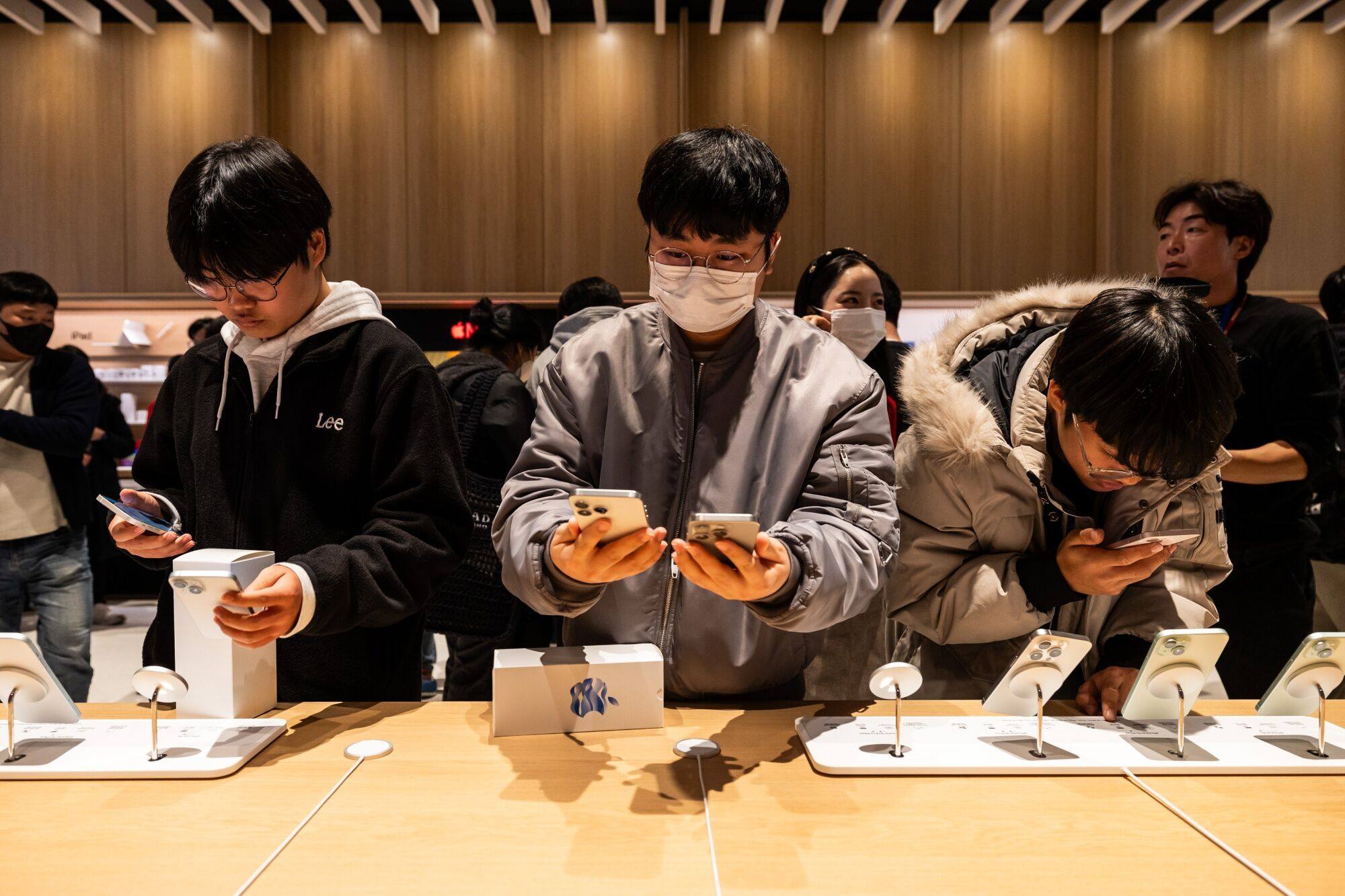
Huawei chases enterprise clients in South Korea as consumers hold onto Samsung, Apple smartphones
- Huawei is unlikely to gain ground in the South Korean smartphone market, which is dominated by Samsung and Apple, analysts say
- The Chinese firm’s new cloud division in the country is eyeing business from the local tech and entertainment industries
This article was first published by The Korea Times in a partnership with the South China Morning Post.
Chinese telecommunications equipment giant Huawei Technologies is poised to make a comeback in the global smartphone market this year, but in South Korea, the company must contend with the lingering impact of US sanctions and intense competition with international and local rivals, according to industry watchers.
Huawei is forecast to move into the spotlight in the smartphone industry in 2024, with projected double-digit growth in global shipments, according to a report published last week by research firm TechInsights, which described the Chinese company as a potential “big surprise”.
But in Korea – home to smartphone and semiconductor titan Samsung Electronics – Huawei is struggling to expand its market share or secure trust from local partners amid the US-China tech rivalry, analysts said.
The Shenzhen-based company, which has been offering various products and services to Korean customers for two decades, has been effectively absent from the country’s smartphone market in the past few years due to its “inability to source 5G chipsets”, said Abhilash Kumar, an analyst at TechInsights.

“South Korea’s smartphone market is 5G-heavy, with a 5G penetration of more than 95 per cent for 2023, so it made little sense for consumers to buy Huawei’s 4G-powered phones,” he said.
Since 2019, Washington has barred the Chinese company, on national security grounds, from accessing US technologies including Google’s most popular apps, which are commonly pre-installed in Android phones sold by rivals like Samsung. That has dealt a heavy blow to Huawei’s overseas sales.
Huawei, which briefly surpassed Samsung to lead global smartphone shipments in early 2020, has dropped out of the global top five since 2021. Last year, the world’s five biggest smartphone vendors were Apple, Samsung, Xiaomi, Transsion and Vivo, according to a report published on Monday by research firm IDC.
In Korea, Huawei had a market share of just 0.1 per cent as of December, far lagging Samsung’s 68.7 per cent and Apple’s 26.5 per cent, numbers from online database Statcounter showed.
Still, “it looks unlikely” that the firm would return to the Korean smartphone market, Kumar said.
“Now that Huawei might have managed to source 5G chipsets locally,” he said. “It’s still difficult for it because [South Korea] is Samsung- and Apple-heavy and doesn’t have much acceptance for Chinese vendors.”
Huawei has tried to launch both premium and affordable smartphones in Korea since 2014, but it has been unable to gain ground “largely due to local operators’ preference for Samsung,” said Woody Oh, service director at TechInsights. “To be successful in the Korean market, [manufacturers] must seek operators’ support.”

Amid difficulties in the consumer market, Huawei is pinning its hopes on enterprise services, according to Wang Balian, CEO of Huawei Korea.
The Huawei-supported 5G network used by Korean carriers ranked first in global tests last year, Wang said at a year-end event in Seoul last month. The company’s enterprise products include data centre networks, campus networks and storage services.
Wang said the company was also expanding its foothold in the cloud computing market, having established a cloud division in Korea last year in hope of serving the information technology and cultural entertainment industries.
The executive highlighted Huawei’s commitment to the Korean market despite running into controversies last year, when SK Hynix – the second-largest memory chip maker in Korea – announced it was investigating how its products ended up in the Mate 60 Pro.
Hynix said at the time that it “no longer does business with Huawei since the introduction of the US restrictions against the company”.
One of Huawei’s key business partners in Korea is LG Electronics. Wang called LG Uplus, South Korea’s third-largest mobile carrier and the country’s sole mobile network operator using Huawei’s 5G base stations, has been touted as one of the Chinese firm’s “important global clients”.
Looking to 2024, Wang said Huawei Korea, which has more than 230 employees, planned to help the country achieve its digitisation and carbon neutrality goals, while continuing to support the cultivation of 1,000 next-generation information technology professionals.

